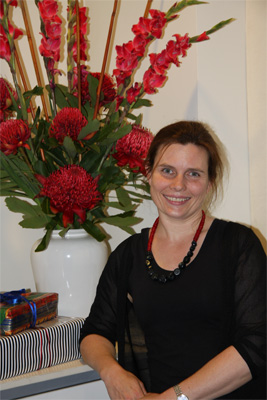Dr. Kristine Barnden RANZCOG Interview

Dr. Kristine Barnden RANZCOG Interview
Question: Can you discuss with how you, a young obstetrician/gynecologist with children, manage work and home life?Dr. Kristine Barnden: I have a job in the public system and working in public hospitals means that I don't have private patients and I have very limited on-call hours and I am also able to work part-time; that is how I do it and that's what works best for me.
Question: How have you seen other young obstetrician/gynecologist with children, manage work and home life?
Dr. Kristine Barnden: Not everyone does it the way that I do it. Working in the public system is certainly one way of doing it and I think if you look at woman who work in the private system some will focus on gynecology where the on-call demands are certainly a lot more manageable. During the day time, you can pretty much always, control what happens; it's being on-call that is a problem.
Others I believe have to really put together fantastic support networks, most will have husbands that don't have very demanding jobs or they have family who live with them or even live-in Nanny's. You really have to have a really good support network.
Question: What originally inspired you to choose this profession?
Dr. Kristine Barnden: I really enjoyed it! It is very rewarding, positive and mostly happy work. The patients that you work with are generally motivated in their health and interested by what is going on; it is very rewarding from that point of view.
Question: Statistics wise there are more practicing male obstetrician/gynaecologist than female why do you believe this is?
Dr. Kristine Barnden: Practicing there certainly are. In terms of training there are more females in the obstetrician/gynecologist field, now.
This is a profession where you work with females and certainly females are more likely to be drawn to that and over the last 10 to 20 years there has been more and more woman entering Medical School, which explains why there are more females training to be obstetricians or gynecologists.
There may also be an element of the fact that we have moved away from the individual practitioner who had his own patients and was on-call for them, 24 hours a day, seven days a week; there are a lot more group practices now, where there are people supporting each other. I think young women who are thinking about entering the profession look at that and think 'Yes! It is do-able' because we don't have to be on call 24 hours a day, seven days a week- there are different ways to do it.
Question: What is a typical day like for you?
Dr. Kristine Barnden: (Laughing) I get up in the morning and I organise both of my children, I have one at school and one in family daycare, I drop them off and head to work. Work, depending on the day, I might be covering the Labour Ward or be doing an antenatal clinic - there are a number of different things. At the end of the day, I go home, pick up the kids and make dinner, then I am in bed, pretty early!
In this profession it is really important to find flexible childcare arrangements; you cannot have your children in a place that shuts at 6pm. You need to have options for someone else to pick them up. With my child, who is in family daycare, the person who looks after her doesn't mind if I'm late. You can't always get away on time.
Interview by Brooke Hunter
MORE



